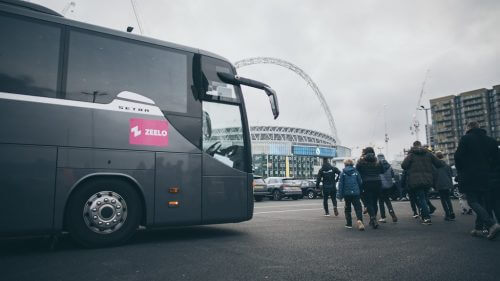 Gareth Evans talks to Barney Williams, Co-founder of on-demand coach platform Zeelo and finds out about the firm’s origin, how it works, what it offers coach operators and its plans for the future
Gareth Evans talks to Barney Williams, Co-founder of on-demand coach platform Zeelo and finds out about the firm’s origin, how it works, what it offers coach operators and its plans for the future
If you know nothing about Zeelo, it sounds on the face of it like some fancy, funky brand – the sort that’s presented by a trendy man dressed in jeans, a woollen suit jacket and brown suede shoes, who is probably based in London. What does Zeelo mean and how is it relevant to the coach industry?
If you’re a smart device user (smartphone, tablet etc.), Zeelo may sound like an app – which it is, although it also works as a traditional website.
I first learnt of the existence of Zeelo when it was mentioned at November’s CPT Coach Conference, the theme of which was ‘Embracing the digital world: maximising online opportunities.’ Some CBW readers may view Zeelo as a threat, while others will see it as an opportunity in the belief they need to get onboard with it – to work with rather than against the platform.
Therefore, I was most interested when Zeelo called me recently – and I suggested a feature. I wanted to learn more and I was sure many readers would too. […]
By subscribing you will benefit from:
- Operator & Supplier Profiles
- Face-to-Face Interviews
- Lastest News
- Test Drives and Reviews
- Legal Updates
- Route Focus
- Industry Insider Opinions
- Passenger Perspective
- Vehicle Launches
- and much more!


